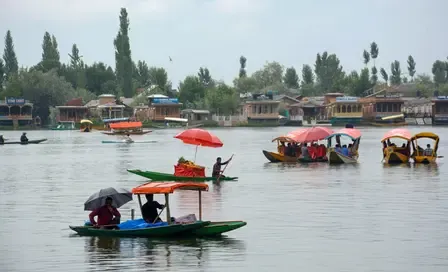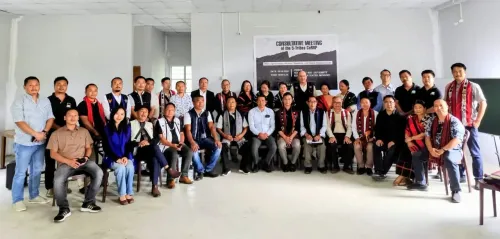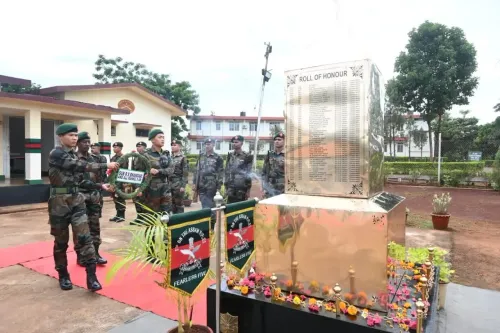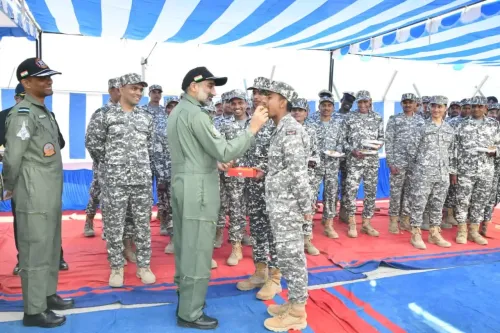What Changes Have Occurred in J&K Six Years After Article 370 Abrogation?

Synopsis
Key Takeaways
- Over Rs 80,000 crore in investments have been made in J&K since Article 370's abrogation.
- Tourist arrivals increased from 7 lakh in 2021 to 35 lakh in 2024.
- Significant voter turnout of 64% in the 2024 state Assembly elections.
- Infrastructure enhancements include the Udhampur-Srinagar-Baramulla Rail Link.
- New educational institutions like IIT Jammu are being established.
New Delhi, Aug 3 (NationPress) As Jammu and Kashmir nears the sixth anniversary of the revocation of Article 370 on August 5, the region showcases a significant journey of change characterized by development, peace-building, and democratic enhancement. The constitutional shift on August 5, 2019, which eliminated the region's special status, has since instigated transformative changes across governance, infrastructure, tourism, healthcare, education, and community life.
In the past six years following this decision, investments exceeding Rs 80,000 crore have been injected into the Union Territory, propelling advancement in various sectors. The government cites increased civic engagement, infrastructure growth, and diminished violence as indicators of enduring peace.
Voter participation in panchayat elections surged by 70%, and the 2020 District Development Council (DDC) elections were celebrated as a democratic achievement.
The 2024 state Assembly elections witnessed substantial involvement from youth and women, transforming grassroots politics with an impressive voter turnout close to 64%. Tourism, previously hindered by conflict and various disruptions, has rebounded significantly.
Visitor numbers soared from 7 lakh in 2021 to nearly 35 lakh in 2024. Srinagar's designation as a UNESCO “World Craft City” and the successful hosting of the G20 Tourism Working Group in 2023 demonstrated global confidence in Kashmir's stability. The Tulip Garden alone attracted 8.5 lakh visitors in 2024. Infrastructure has seen extraordinary enhancements.
The Udhampur-Srinagar-Baramulla Rail Link is fully functional, while major tunnel projects such as Zojila and Z-Morh are in progress to enhance connectivity. Over 9,700 homes have been digitally connected under BharatNet, improving digital access in remote regions. Education and employment opportunities have also flourished.
New institutions like IIT Jammu and AIIMS Awantipora (scheduled to open in late 2025) are augmenting academic prospects.
Programs such as the Prime Minister's Employment Generation Programme (PMEGP), Mumkin, and Tejaswini have empowered thousands, particularly women, to embark on entrepreneurial ventures.
Meanwhile, healthcare reforms under Ayushman Bharat SEHAT have extended complimentary treatment to 7 lakh residents.
While political discussions continue, the clear transition from conflict to development is unmistakable. As Kashmir approaches six years since the repeal of Article 370, the region finds itself at a pivotal moment—shaped not by fear and uncertainty, but by hope, infrastructure, and democratic aspirations.









